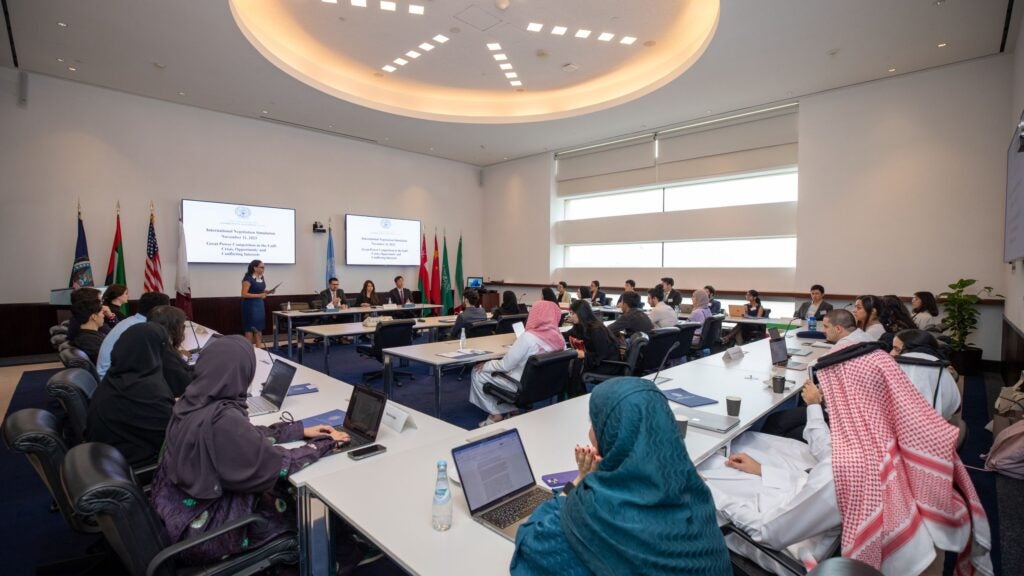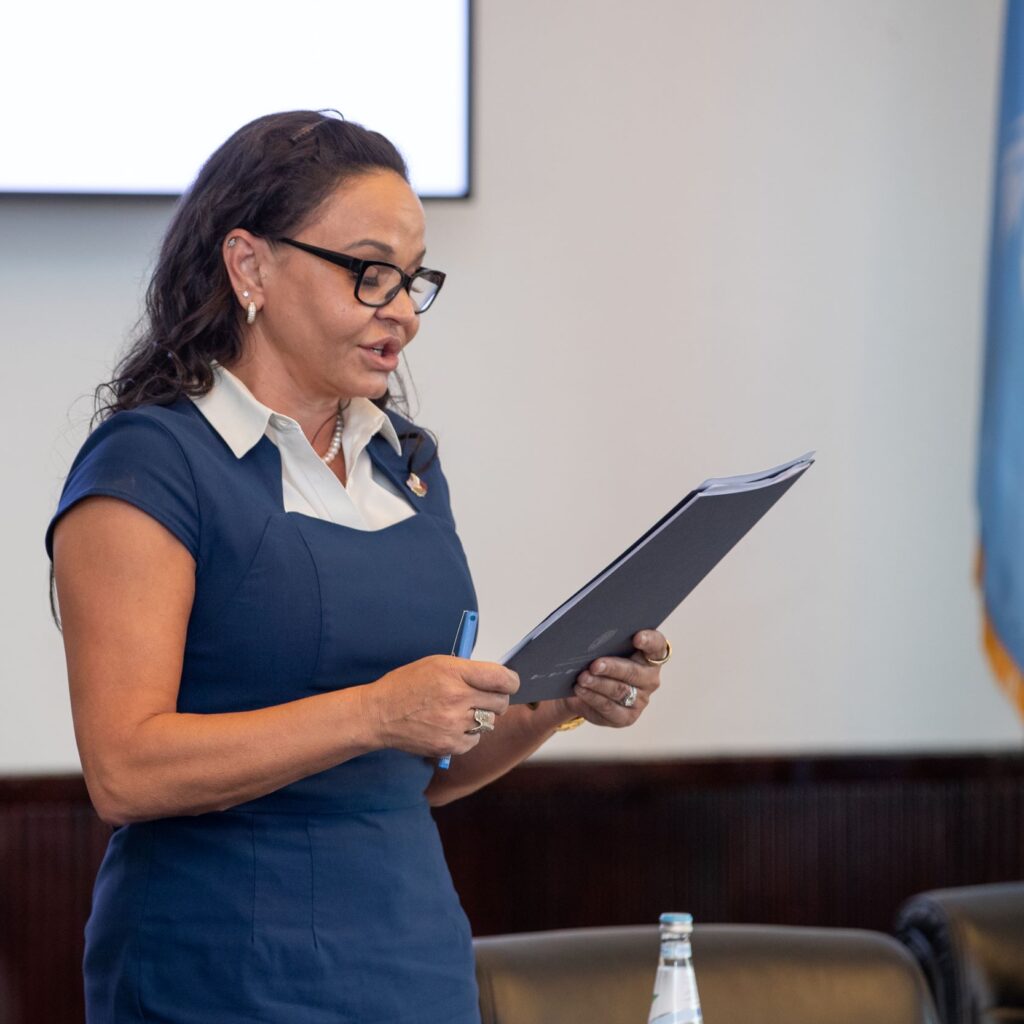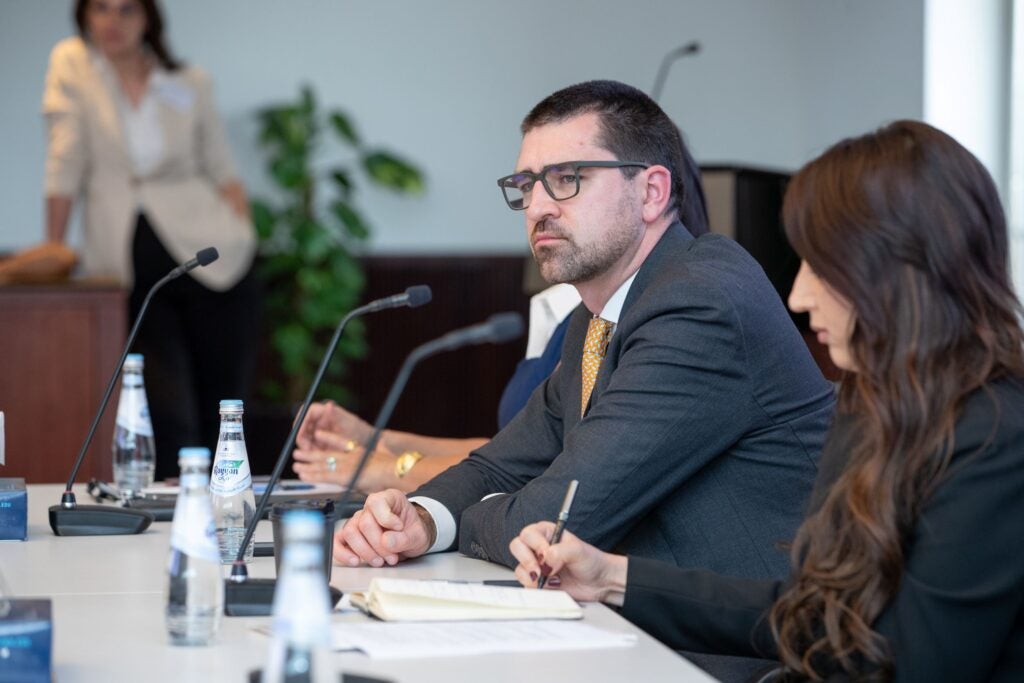Georgetown Campuses Collaborate to Lead Negotiation Simulation

Going beyond traditional classroom learning in order to equip students with the skills needed to navigate a complex world, GU-Q, in collaboration with the Institute for the Study of Diplomacy at Georgetown University’s Walsh School of Foreign Service, recently held its flagship one-credit International Negotiation Simulation Program. This year’s simulation, titled “Great Power Competition in the Gulf: Crisis, Opportunity, and Conflicting Interests,” saw 35 students majoring in economics, politics, history, and culture take on the role of diplomats to resolve a hypothetical international crisis.
Co-organized annually by Dr. Christine Schiwietz, Assistant Dean at GU-Q, and James Seevers, Director of Studies at the Institute for the Study of Diplomacy (ISD) at Georgetown’s School of Foreign Service in Washington, DC, this immersive simulation aims to provide students with a real-world understanding of international negotiations and geopolitics in the Gulf region. Roland McKay, a career member of the US Foreign Service and experienced diplomat, also provided invaluable insights, reinforcing the program’s connection to actual diplomatic practices.

Dr. Schiwietz emphasized the significance of this exercise, stating, “The crisis simulation is uniquely positioned to offer students a transformative, hands-on experience that mirrors real-world diplomatic challenges. Drawing on our campus in DC provides unparalleled resources and expertise for students here in Qatar, and hosting this exercise in the heart of the Gulf further provides an unparalleled perspective on the region’s intricate dynamics.”
The simulation’s scenario, set in a hypothetical 2030, required teams of students representing the countries involved to navigate international diplomacy amid rising tensions between the United States and China in the Gulf region. The involvement of Natalie Baker, Deputy Chief of Mission at the U.S. Embassy in Doha, added a dimension of real-world diplomacy to the exercise.
James Seevers highlighted the educational value of the program, saying: “Through this simulation, students not only learn about the complexities of international relations but also develop essential skills in negotiation and strategic thinking.” Additional faculty guidance was provided by GU-Q professors, Professor Kareema Daoud-Akguc and Dr. Nadine Gham

Before the fast-moving diplomatic debates and negotiations even began, students prepared by attending five mandatory modules. These included an introduction to negotiation principles, an analysis of the PRC-US rivalry, and a deep dive into intra-Gulf dynamics. The program culminated with a reflective debriefing session, enabling students to consolidate their experiences and insights and enhancing their understanding and skills in international diplomacy.